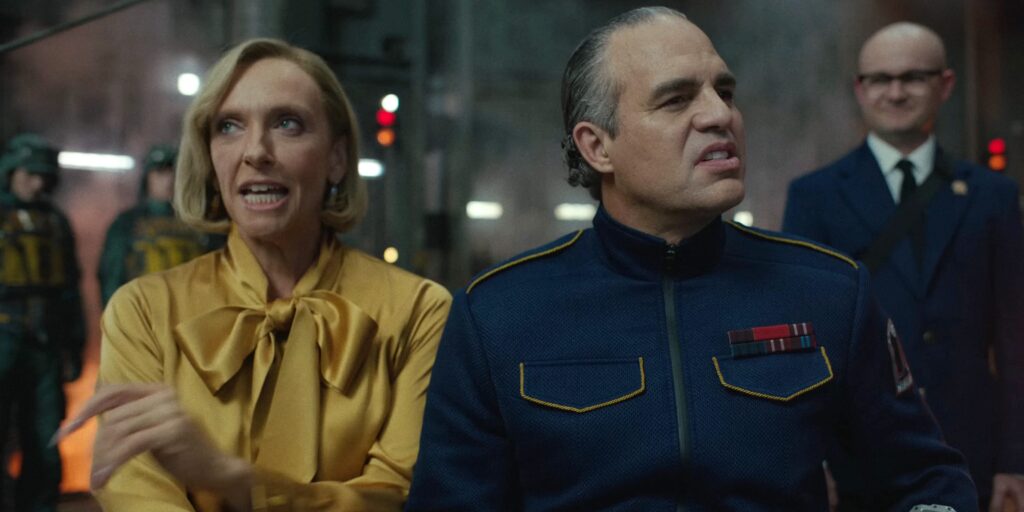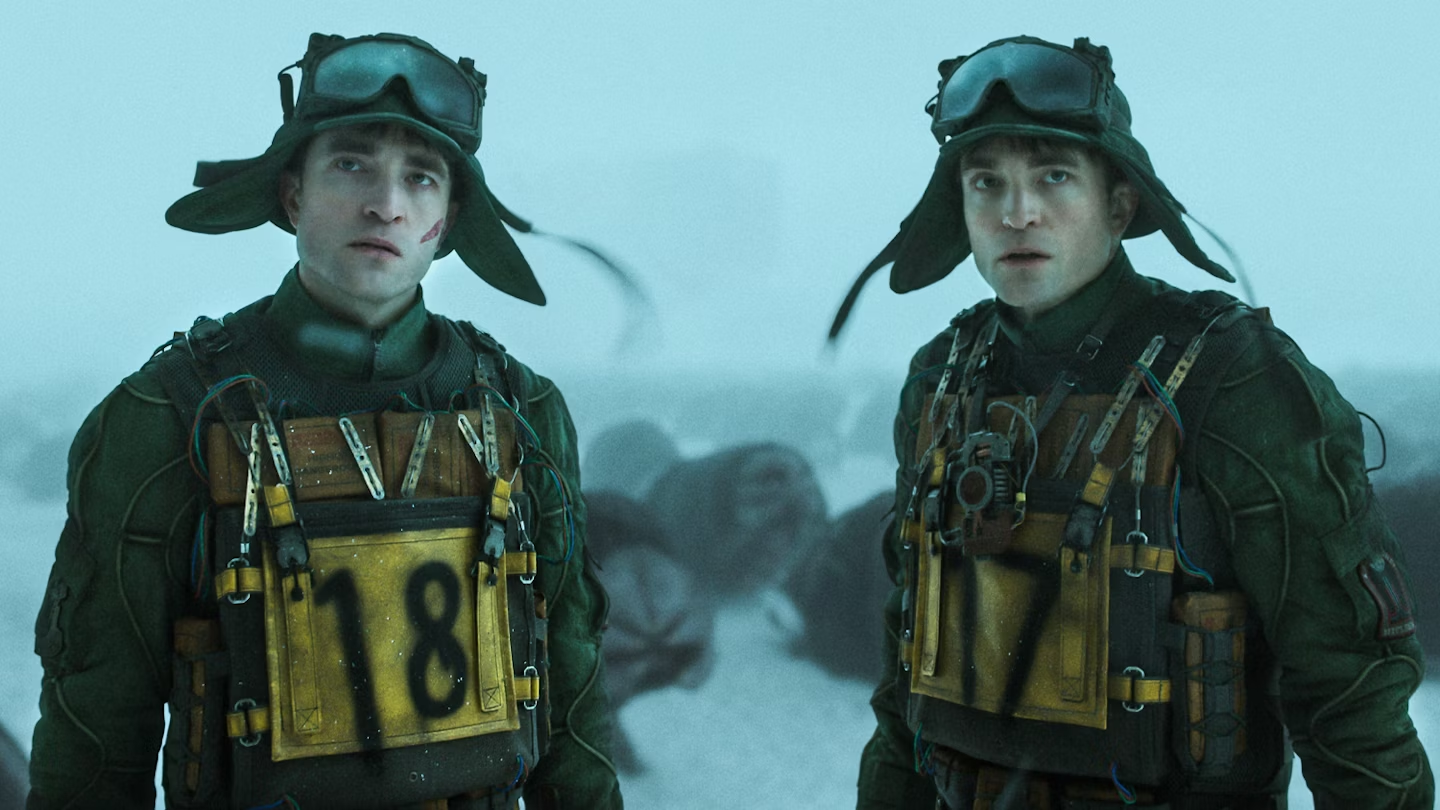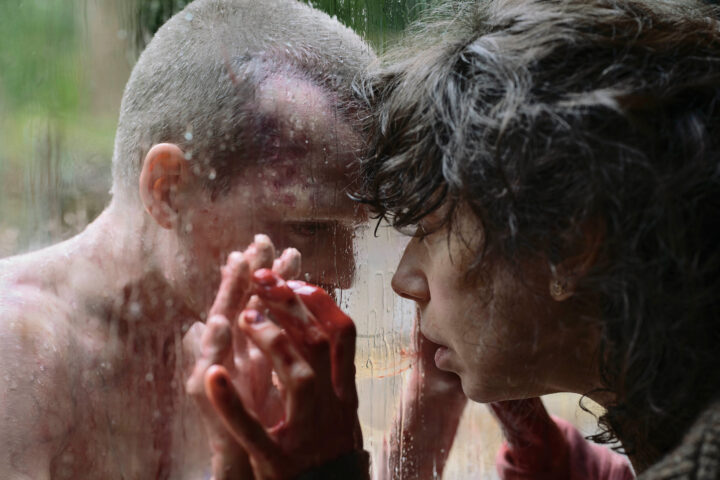American filmmakers have mostly abandoned incisive political cinema. A few years ago, I lamented this to Oliver Stone, who plainly noted that neither studios nor audiences want political thrillers or government critiques anymore. The new Mickey 17, however, sees a world-class Korean filmmaker using American commercial film to deliver a smart cultural and political indictment of 2025 America—and doing so with, dare we say, hope.
Five years ago, Bong Joon-ho made Best Picture history as his Cannes-winning class warfare masterwork Parasite electrified audiences to become the first international film to score Hollywood’s top honor. In his acceptance speech, the Best Director winner passionately advocated for international cinema: “Once you overcome the one-inch-tall barrier of subtitles, you will be introduced to so many more amazing films.” Then America (or rather, Warner Bros.) came calling to produce his new Mickey 17, another exuberant capitalist indictment, which even though it does contain a few subtitles isn’t quite amazing, trading Parasite’s Pandora’s box thrills for broad, sci-fi political allegory.
Based on Edward Ashton’s 2022 sci-fi novel Mickey7 and with a screenplay adaptation by its director, Mickey 17 is the futuristic saga of an enslaved clone commandeered for colonialism by an authoritarian power-monger in a hostile takeover of a remote planet and its native life. Reworking the story, Bong slings arrows at class and fascism; the result is a bombastic yet enjoyable movie, both messy and meaningful—or, in Bong vernacular, more Snowpiercer than Parasite, with a bit of Okja thrown in for good movie measure.
Opening in the sci-fi near future of 2054, Robert Pattinson plays Mickey, a debt-ridden con man who signs up to work on a frozen planet—or, more accurately, to die (ad infinitum) trying, since he’s given the most dangerous of assignments. Thanks to advanced tech, Mickey can be endlessly replicated after each fatality. As the picture opens, he’s on his 17th iteration and has grown eerily casual about the cycle of death and resurrection as the planet’s sole “expendable”—a man owned by the machine that keeps “reprinting” him. But he’s not a robot—he’s still human with feelings, memories and a tenuous grasp of the value of life and mortality.
Mickey lives aboard a government spacecraft stationed on the planet Niflheim (In Norse mythology it means icy and cold), a cog in an operation run by a twice-failed congressman and fascist nut named Kenneth Marshall (Mark Ruffalo), a Trumpian blowhard with a shrill harpy of a calculating wife named Alfa (Toni Collette). What’s the project’s aim? What else—to create a genetically “pure” settler colony of arch-conservative Evangelical baddies.

The plot kicks in when Mickey 17, played by Pattinson with underdog recessiveness and an exaggerated, Midwest accent (the actor purportedly leaned heavily on Fargo), is presumed killed by the planet’s native population of creatures named “Creepers,” which resemble big, wooly bugs with many legs; imagine a oversized “roly poly” with fur. The Creepers are thought to be highly dangerous, but turn out to be sophisticated thinkers and communicators.
Enter Mickey 18 (also Pattinson), a next gen version of jittery Mickey 17. But once it’s revealed that Mickey 17 is still alive, both versions find themselves in a pickle (“multiples” are strictly forbidden), Pattison doing fine work delineating between copies of the same man—one an “outsider” and the other unhinged cool—and Bong has fun entangling them in romantic and sexual clinches including a comical menage with the impressive Naomi Ackie, superb in last year’s thriller Blink Twice.
There’s a lot going on in Mickey 17, and much of it at full-decibel sound and image; it’s technically accomplished but thematically on-the-nose, and that’s okay—not everything needs to be subtle—but you’d have to be asleep to miss the canvas Bong is painting, here a scathing take-down of contemporary religious fundamentalists and corrupt, false-prophet politicians using slave labor to conquer and decimate a native population (or at least cut off their tails to create a sauce-like delicacy). Class, identity, megalomania, a fuzzy animal species—Mickey 17 plays like a summation of Bong’s catalogue and narrative fascinations, writ large for the first time on an American studio budget and aimed at a populist audience (though Parasite ultimately achieved the same).
Yet bigger isn’t always better. For all its craft, Mickey 17 is overstuffed and often so loud that Bong’s maximalism can sometimes blunt, rather than sharpen, his points. The wildly vampy Ruffalo and Collette reflect this excess, though it’d be a stretch to call their performances mere satire given the grossly exaggerated political reality of 2025 America. Still, Ruffalo’s over-the-top (and back down again) turn can take you out of the movie. In contrast to finely tuned comedic work in Poor Things (for which he received an Oscar nod), his cartoonish send up here might have benefitted from a bit more restraint. Along the way, the fine Steven Yuen (Burning, Minari) turns up as Mickey’s pilot friend and fellow knave, as does Romanian actress Anamaria Vartolomei, so memorable in 2021’s French period abortion drama Happening, here photographed with the radiance of a real movie star.
In Mickey 17, one can feel echoes of the madcap invention of Terry Gilliam’s Brazil, satiric barbs of Starship Troopers and, at times, manic energy of The Fifth Element. But this is not to say that Bong is derivative; far from it. He’s got a point of view and aesthetic all his own, one that marries the mundane and the fantastic, where weary humans and bug-eyed creatures mingle, campiness interrupts Big Existential Questions and moments of sly sexuality and visceral action merge.
As a commercial movie Mickey 17 is striving to rock-em-sock-em entertain while saying something of sociopolitical value. And there’s no lie in the film’s thesis that a capitalist machine can only work by exploiting and discarding the underclass (this year’s Oscar-winner Anora explicitly channels the same). Ditto its notions of the human identity increasingly manipulated, duplicated and mined by rapidly advancing tech. If fascism is to be beaten, Bong reminds us, it will start with the powerless individual daring to challenge the machine. On this score, Mickey 17 isn’t exactly Mr. Smith Goes to Washington, but it’s a bold, sometimes exhausting, often fun ride proving that Bong’s Hollywood debut hasn’t dulled his edge.
2 1/2 stars



